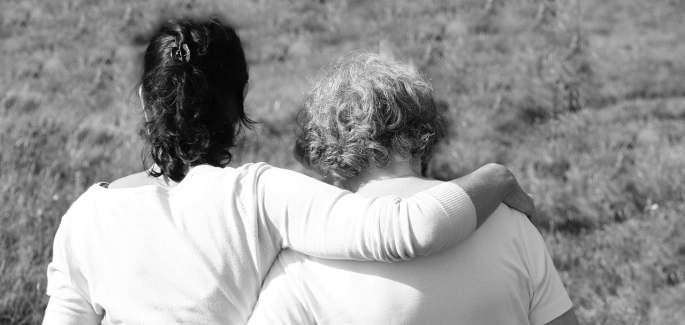
Oct 23, 2017 | Non categorizzato
 My return “My father passed away when I was 14. My mother, who was much younger than he was, gave us children much grief. She was often out with friends drinking, and she eventually left us for someone who divided his time between her and another family. After my siblings married, I found myself living alone, blaming my mother for all my pain. I could not forgive her. Yet I still called myself a Christian. I thought about the fact that she could not give me something she had not received herself. I realised it was up to me, since I had received the grace of the Gospel, to take the first step. It was a slow process. I started by calling her every so often, visiting her with small gifts and praying for her. Once I had felt like a victim of circumstances, but now I discovered that true happiness lies in loving without expecting anything in return. Even my relationship with her partner became more and more peaceful, and I try not to judge. Now I am the bridge between my siblings and my mother, and I’m sure that little by little they will come back to her.” (Alenne, Brazil) The cup of tea “I was in a cafe’ when I noticed an elderly lady asking for a cup of tea. She was quite poor, and the owner, thinking that she wouldn’t be able to pay, refused to serve her. I didn’t have much change in my pocket, but it would have been enough. I thought it was what Jesus would have done, so I said to the owner, “Give her the tea, I’ll pay.” To my surprise he answered: “That wouldn’t be fair. Your generosity helped me understand that it is much simpler for me, as the owner here, to offer it to her.” Taking the first step was all that was needed!” (John Paul, Pakistan) A hundredfold of love “For a number of years I’ve been working at a rehabilitation center, mostly with young people who, despite their vulnerability and suffering, are fighting to get back to a normal life. We work together in the kitchen each Thursday to prepare lunch. I thought I was being useful for them, but instead I’ve experienced that the love I give always comes back hundredfold. I understood that if we make an effort to welcome others as they are, with their weaknesses and painful histories, as Jesus would with a merciful eye, we can experience hope for a more peaceful future.” (Graziella, Italy) Forgetting my shortcomings “When I speak in public, my hands shake and my head gets a bit foggy. I tried to accept this and instead try to do something tangible for others. I started with small gestures, like helping my mother with the housework, or my siblings with their homework. Or I call my grandmother, who lives alone, and I go to visit her, bringing her some flowers or something sweet. At university I try to give a hand to those who are not as successful with exams. By doing this, my life didn’t just change, but I practically forgot all about my shortcomings.” (M., Germany)
My return “My father passed away when I was 14. My mother, who was much younger than he was, gave us children much grief. She was often out with friends drinking, and she eventually left us for someone who divided his time between her and another family. After my siblings married, I found myself living alone, blaming my mother for all my pain. I could not forgive her. Yet I still called myself a Christian. I thought about the fact that she could not give me something she had not received herself. I realised it was up to me, since I had received the grace of the Gospel, to take the first step. It was a slow process. I started by calling her every so often, visiting her with small gifts and praying for her. Once I had felt like a victim of circumstances, but now I discovered that true happiness lies in loving without expecting anything in return. Even my relationship with her partner became more and more peaceful, and I try not to judge. Now I am the bridge between my siblings and my mother, and I’m sure that little by little they will come back to her.” (Alenne, Brazil) The cup of tea “I was in a cafe’ when I noticed an elderly lady asking for a cup of tea. She was quite poor, and the owner, thinking that she wouldn’t be able to pay, refused to serve her. I didn’t have much change in my pocket, but it would have been enough. I thought it was what Jesus would have done, so I said to the owner, “Give her the tea, I’ll pay.” To my surprise he answered: “That wouldn’t be fair. Your generosity helped me understand that it is much simpler for me, as the owner here, to offer it to her.” Taking the first step was all that was needed!” (John Paul, Pakistan) A hundredfold of love “For a number of years I’ve been working at a rehabilitation center, mostly with young people who, despite their vulnerability and suffering, are fighting to get back to a normal life. We work together in the kitchen each Thursday to prepare lunch. I thought I was being useful for them, but instead I’ve experienced that the love I give always comes back hundredfold. I understood that if we make an effort to welcome others as they are, with their weaknesses and painful histories, as Jesus would with a merciful eye, we can experience hope for a more peaceful future.” (Graziella, Italy) Forgetting my shortcomings “When I speak in public, my hands shake and my head gets a bit foggy. I tried to accept this and instead try to do something tangible for others. I started with small gestures, like helping my mother with the housework, or my siblings with their homework. Or I call my grandmother, who lives alone, and I go to visit her, bringing her some flowers or something sweet. At university I try to give a hand to those who are not as successful with exams. By doing this, my life didn’t just change, but I practically forgot all about my shortcomings.” (M., Germany)
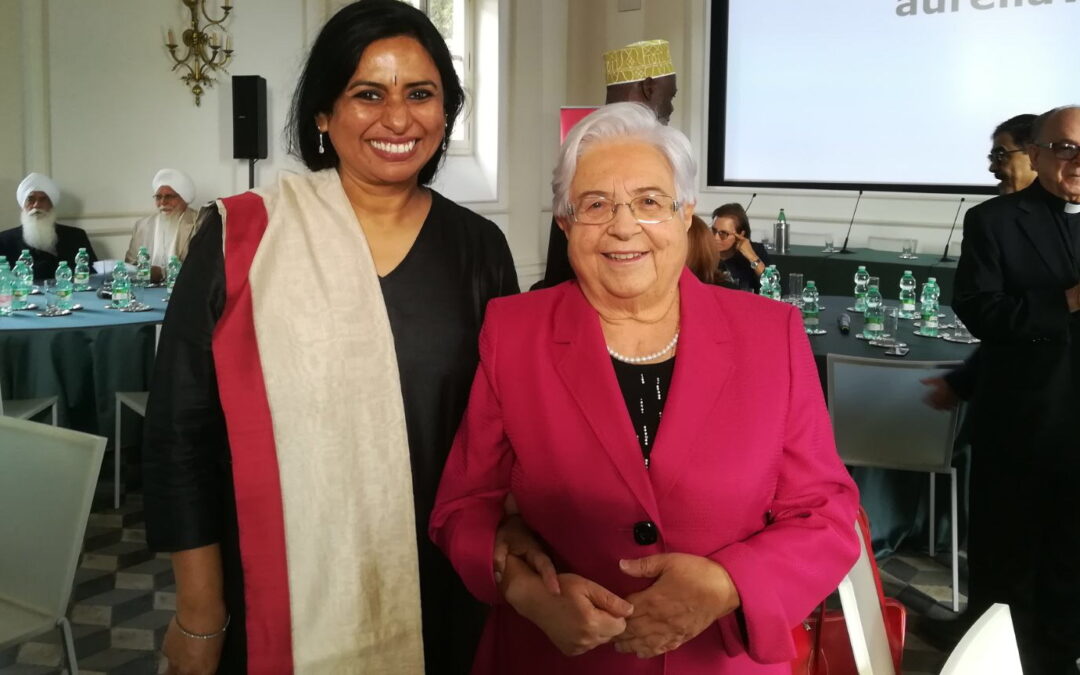
Oct 21, 2017 | Non categorizzato
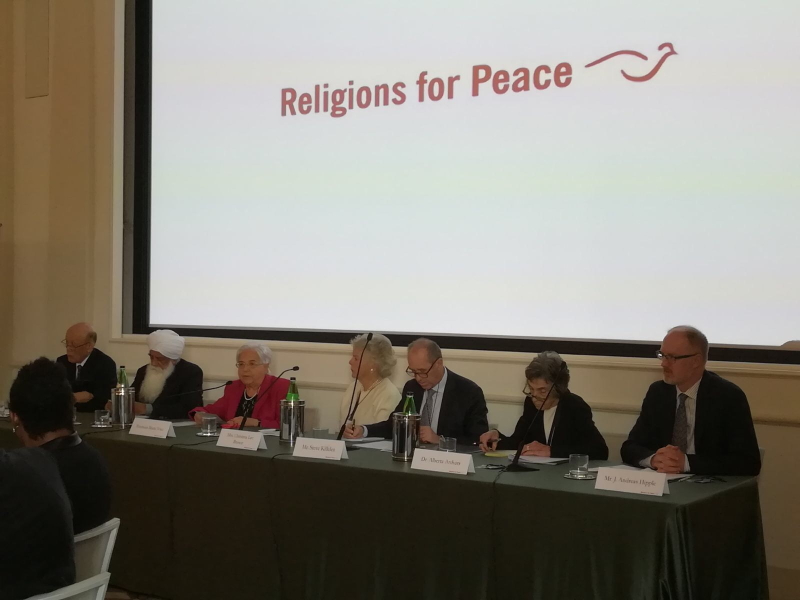 “There is a need for a common and cooperative effort on the part of the religions in promoting an integral ecology. Religions have the wherewithal to further a moral covenant that can promote respect for the dignity of the human person and care for creation”. This was a message that Pope Francis, prior to greeting the crowds at St Peter Square, addressed to the 80 delegates of Religions for Peace accompanied by Cardinal Jean-Louis Pierre Tauran, President of the Pontifical Council for Interreligious Dialogue. The Pope expressed his “esteem and appreciation for the work of “Religions for Peace”. You provide a valuable service to both religion and peace, for the religions are bound by their very nature to promote peace through justice, fraternity, disarmament and care for creation”.
“There is a need for a common and cooperative effort on the part of the religions in promoting an integral ecology. Religions have the wherewithal to further a moral covenant that can promote respect for the dignity of the human person and care for creation”. This was a message that Pope Francis, prior to greeting the crowds at St Peter Square, addressed to the 80 delegates of Religions for Peace accompanied by Cardinal Jean-Louis Pierre Tauran, President of the Pontifical Council for Interreligious Dialogue. The Pope expressed his “esteem and appreciation for the work of “Religions for Peace”. You provide a valuable service to both religion and peace, for the religions are bound by their very nature to promote peace through justice, fraternity, disarmament and care for creation”.
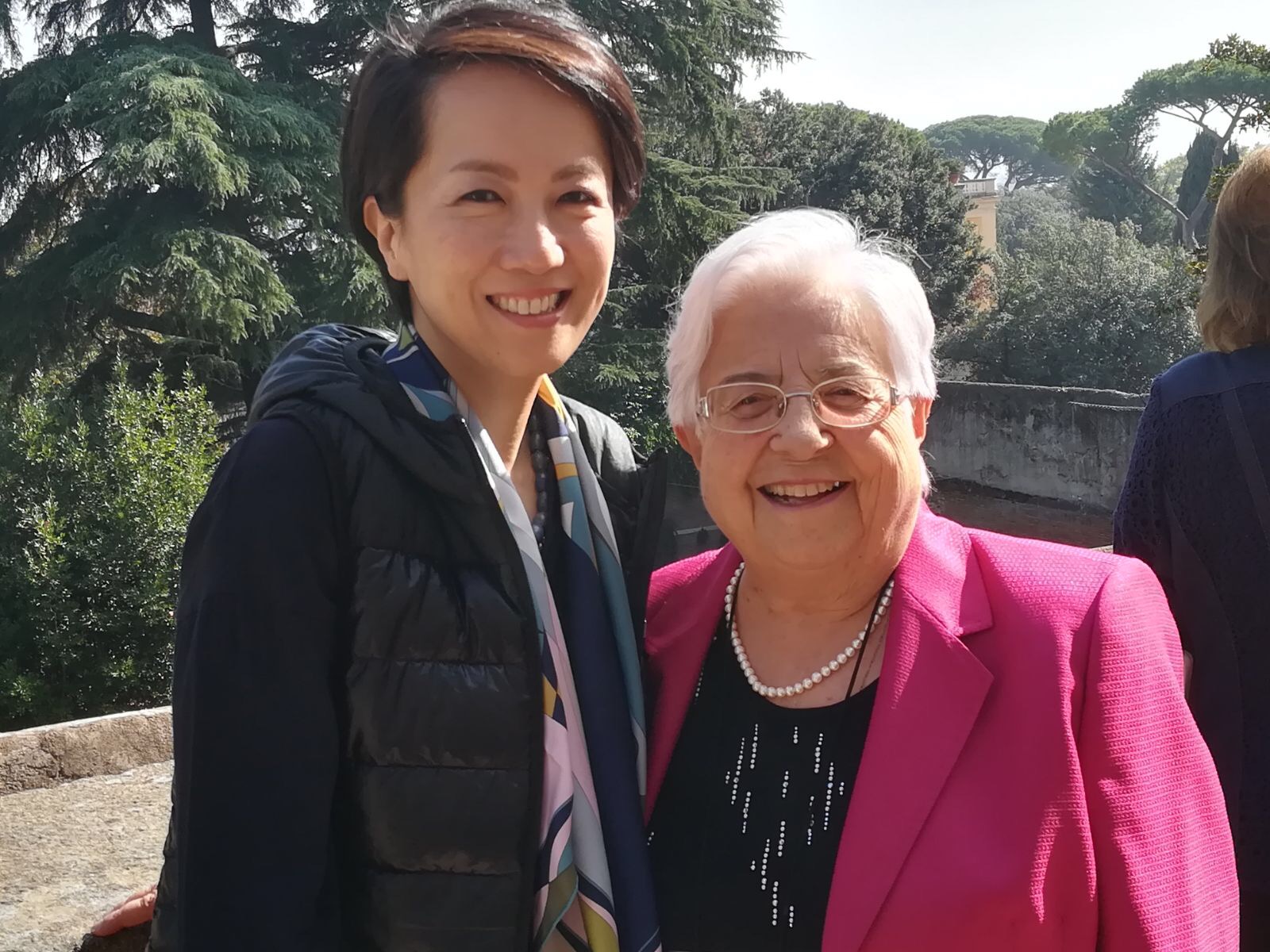
Maria Voce with Rev. Kosho Niwano, President-Designate of the Buddhist Movement Rissho Kosei-kai
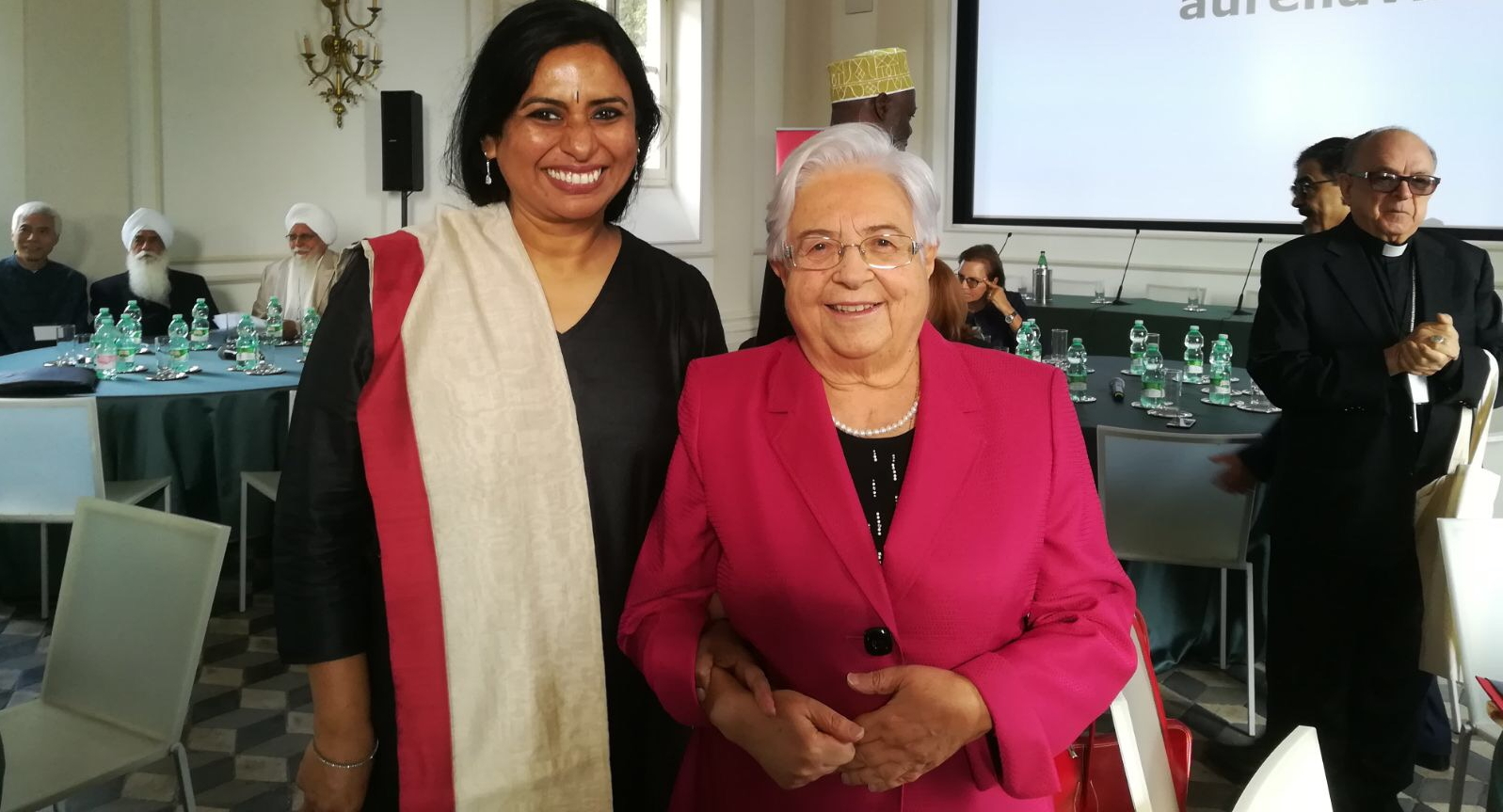
With Dr Vinu Aram, Director of Shanti Ashram and co-Moderator, Religions for Peace International.
Oct 20, 2017 | Non categorizzato
The death toll of the doublé suicide attack that took place last Saturday in Mogadishu, Somalia, continues to rise. The most recent news reports of at least 300 deaths and hundreds of injured. The October 14 attack was the most serious one in recent years, with 20 schoolchildren on a school bus. At the October 18th General Audience in St Peter’s Square, Pope Francis stated: “I want to express my sorrow for the massacre. This act of terrorism deplorable, also because it rages against a people that is already sorely tried.” He concluded: “I pray for the deceased and for the wounded, for their families and for the whole Somalian people. I implore the conversion of the violent and encourage all those who are working with enormous difficulty for peace in that battered country.”.
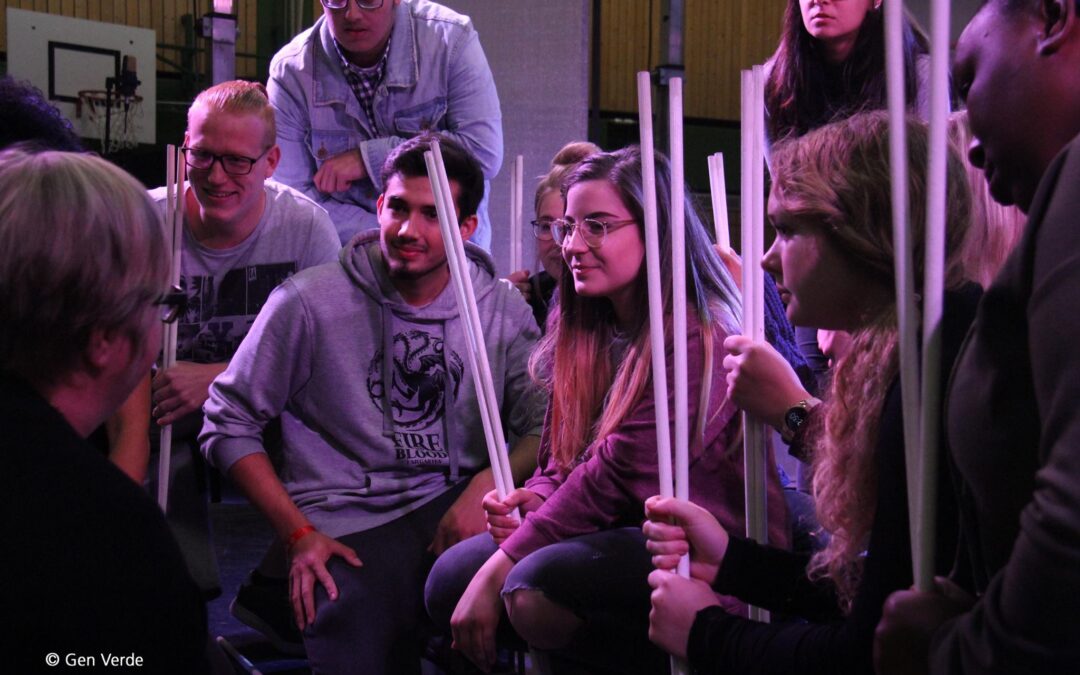
Oct 20, 2017 | Non categorizzato
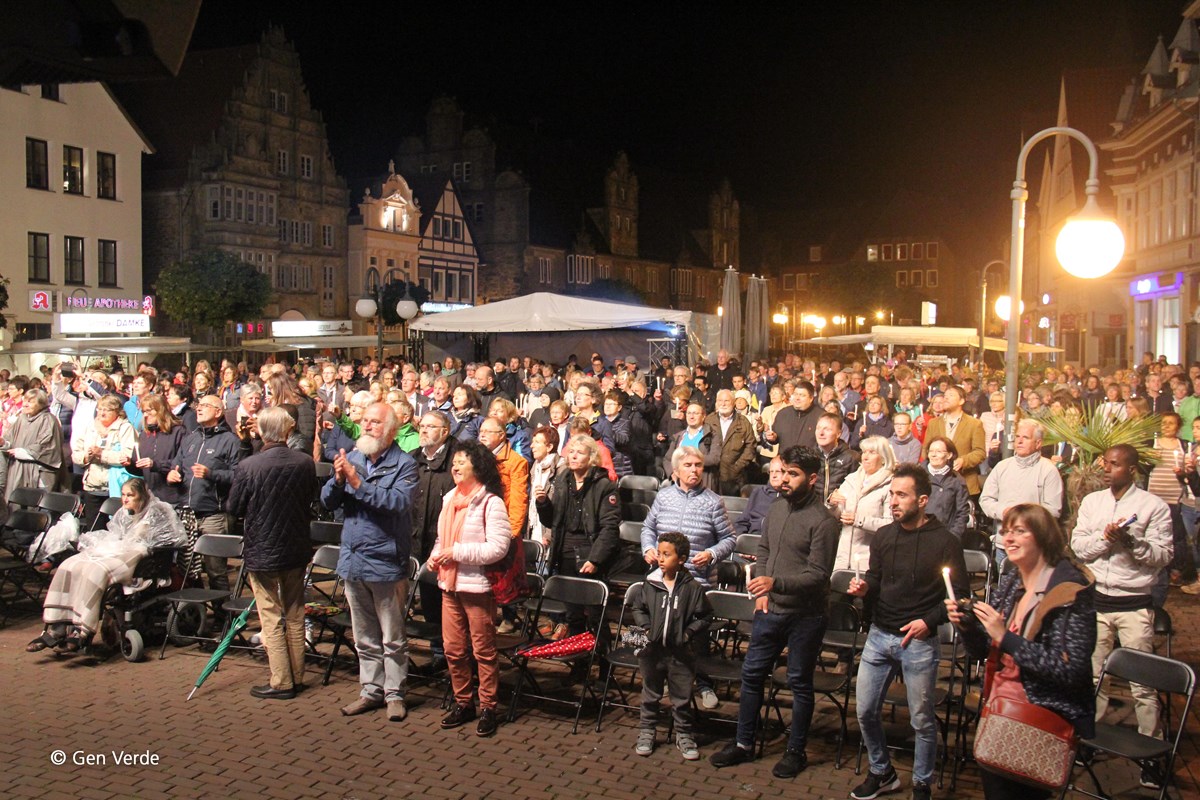 A month of dialogue, encounters and rediscovery of the “other’s” value. In a country characterized by a strong multi-ethnic feature, rhythm and music exercised a unifying power. On 9 September, in the town of Stadthagen, in the Lower Saxony region, on the occasion of the celebrations for the Reformation Jubilee, Gen Verde (22 members from 14 different countries) brought a note of internationality with the show, On the Other Side. A journey from one part of the planet to the other, recounted through personal experiences or that of entire populations, highlighted the wealth of diversity and the potential of those who find themselves “on the other side.” On 15 September in Boppard, at the local Fazenda da Esperança, community that challenges drug addiction in the perspective of a rebirth, the La vita LIVE concert became the occasion for a personal encounter between the members of the band and the experiences of the youth. The opportunity to understand that each one can take a small but huge step to change something, and to discover each other as brothers.
A month of dialogue, encounters and rediscovery of the “other’s” value. In a country characterized by a strong multi-ethnic feature, rhythm and music exercised a unifying power. On 9 September, in the town of Stadthagen, in the Lower Saxony region, on the occasion of the celebrations for the Reformation Jubilee, Gen Verde (22 members from 14 different countries) brought a note of internationality with the show, On the Other Side. A journey from one part of the planet to the other, recounted through personal experiences or that of entire populations, highlighted the wealth of diversity and the potential of those who find themselves “on the other side.” On 15 September in Boppard, at the local Fazenda da Esperança, community that challenges drug addiction in the perspective of a rebirth, the La vita LIVE concert became the occasion for a personal encounter between the members of the band and the experiences of the youth. The opportunity to understand that each one can take a small but huge step to change something, and to discover each other as brothers. 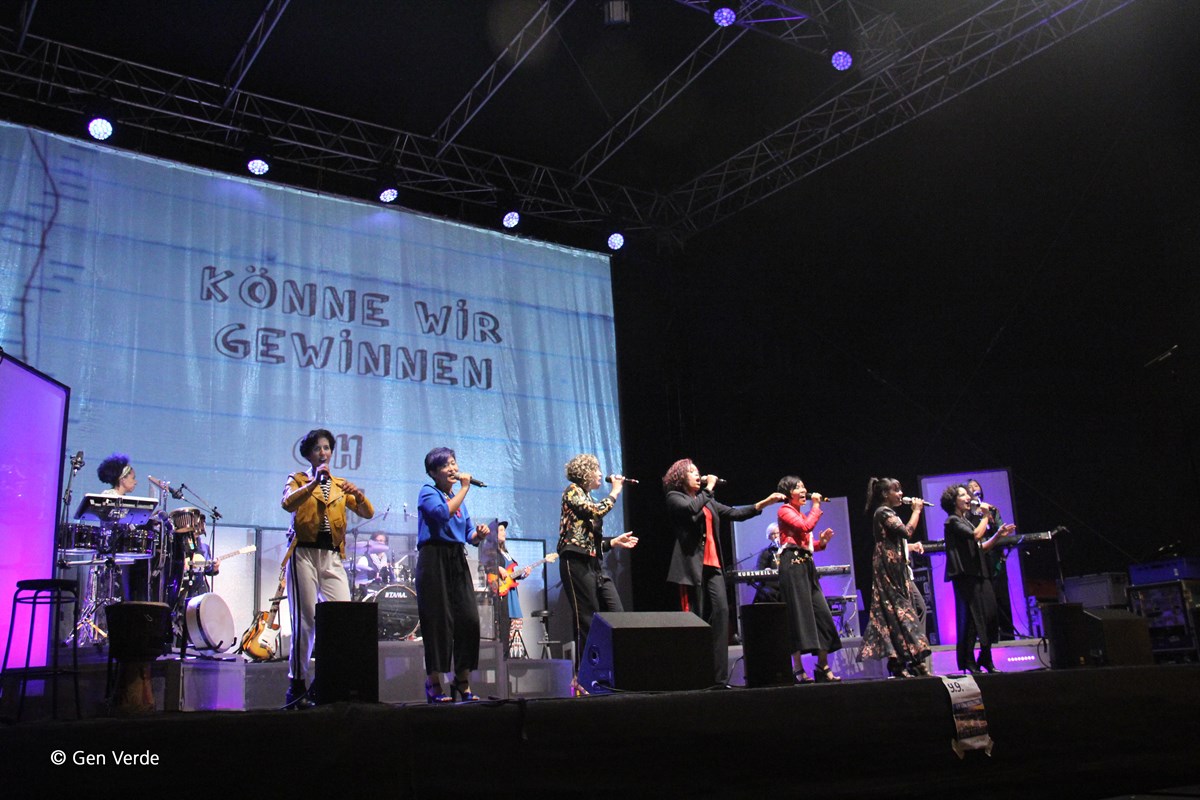 The following days, Gen Verde’s typical artistic features were expressed in a Start Now workshop: an intense boot camp that lasted five days, held in each of the three stopovers, working side by side with boys and girls. During the creative stage, which comes about always in a new and unforeseeable way, the youths worked in teams to develop their own talents and potentials, co-protagonists of a fascinating experience based on mutual listening and transparency. After two days of intense work, supported by the group’s trust and respect, the youths performed with the band in the final show, in a crescendo of emotions. There were three workshop-shows: in Dortmund, where the group worked with 170 boys and girls and in Duderstadt, with the students of three schools, among which a big group of immigrants, and lastly in Mannheim, with men and women living in a big refugee camp.
The following days, Gen Verde’s typical artistic features were expressed in a Start Now workshop: an intense boot camp that lasted five days, held in each of the three stopovers, working side by side with boys and girls. During the creative stage, which comes about always in a new and unforeseeable way, the youths worked in teams to develop their own talents and potentials, co-protagonists of a fascinating experience based on mutual listening and transparency. After two days of intense work, supported by the group’s trust and respect, the youths performed with the band in the final show, in a crescendo of emotions. There were three workshop-shows: in Dortmund, where the group worked with 170 boys and girls and in Duderstadt, with the students of three schools, among which a big group of immigrants, and lastly in Mannheim, with men and women living in a big refugee camp. 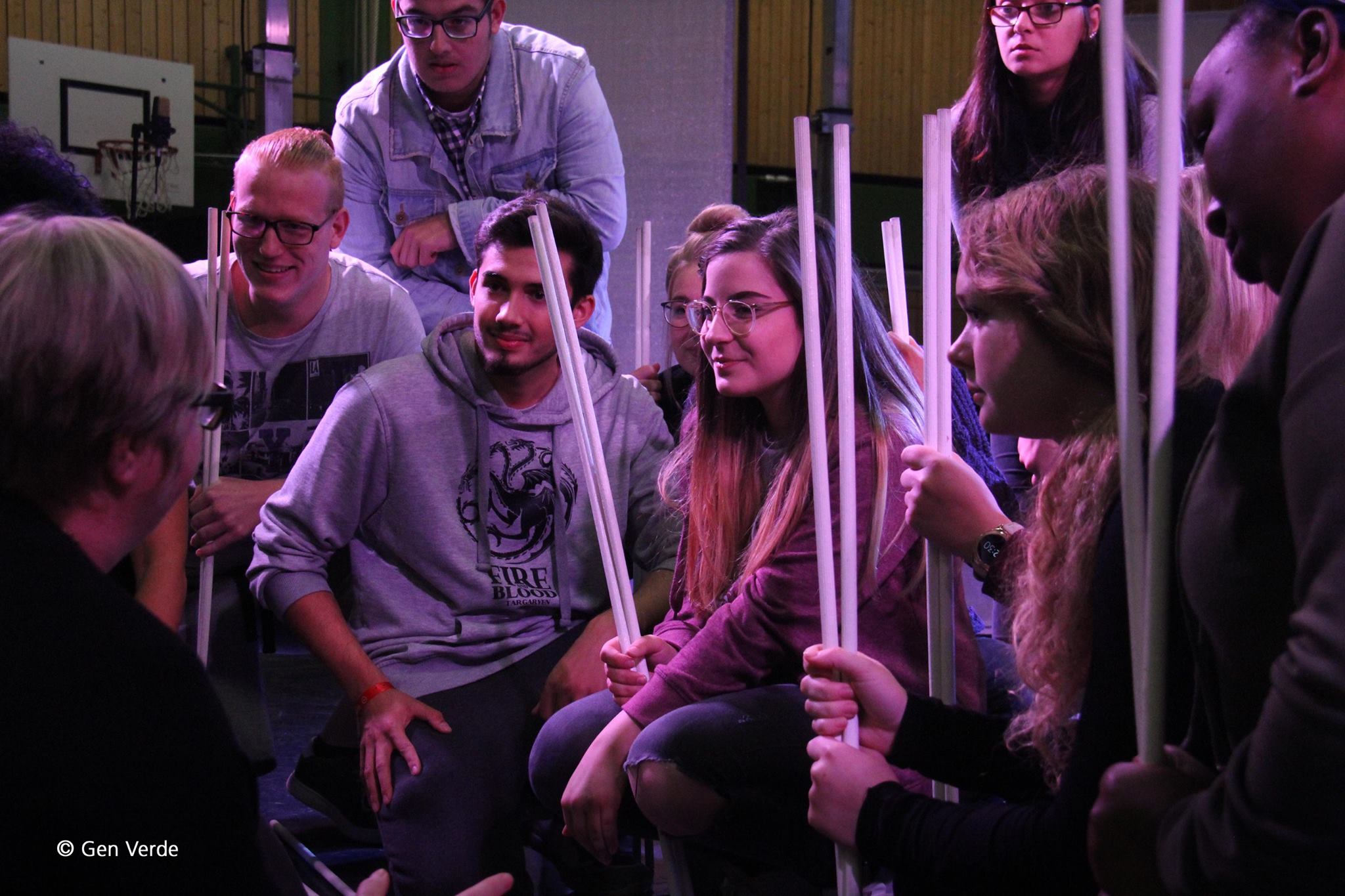 In every city, during the final show, the same miracle came about though with different characteristics: changes in life, atmosphere of deep fraternity, and the involvement even of those who were initially reluctant. “It is incredible what one can do in just two days!” exclaimed a still incredulous girl. And a young boy: “The errors did not paralyse us, but rather, we were encouraged to go on.” Particularly in Mannheim, Gen Verde met people who had suffered such heartbreaking pain, and had been subjected to barbarous treatment or had lost all their possessions. The group members recounted: “We went to visit them where they live, and they shared their stories with us. During the soiree, when we sang “Who will cry for you,” many relived moments of the tragedies they had undergone.” And the words “No one is a stranger to me” resounded like never before. Fotogallery
In every city, during the final show, the same miracle came about though with different characteristics: changes in life, atmosphere of deep fraternity, and the involvement even of those who were initially reluctant. “It is incredible what one can do in just two days!” exclaimed a still incredulous girl. And a young boy: “The errors did not paralyse us, but rather, we were encouraged to go on.” Particularly in Mannheim, Gen Verde met people who had suffered such heartbreaking pain, and had been subjected to barbarous treatment or had lost all their possessions. The group members recounted: “We went to visit them where they live, and they shared their stories with us. During the soiree, when we sang “Who will cry for you,” many relived moments of the tragedies they had undergone.” And the words “No one is a stranger to me” resounded like never before. Fotogallery
https://vimeo.com/236654355
Oct 19, 2017 | Focolare Worldwide
The clashes have started again and the tension is high. On 22 September and 1 October the army suppressed the peaceful demonstrations, killing and wounding some of the protesters who were asking for the independence of the British-speaking regions. That same day in the Northwest and Southwest Regions (inhabited by an English minority, 20 % of Cameroon’s population), once again internet was cut off. The “English-speaking issue” is well rooted in the past. In October 2016, the English-speaking population had started to hold organized protests against its progressive marginalisation. After months of tensions and accusations of discrimination, violent repressions followed, with real guerilla actions. Fr. Antonio Mascia writes from Fontem: “This is a delicate and uncertain time from the socio-political point of view, and we do not know where it will lead to. In various cities, soldiers of the army shot at the crowd that was peacefully demonstrating and many people were arrested. We are counting on your prayers.”
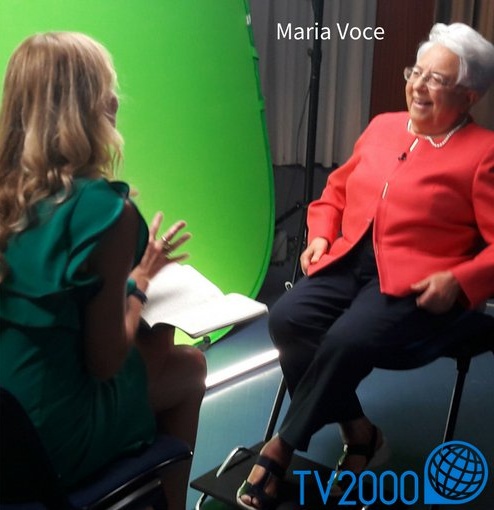
Oct 19, 2017 | Non categorizzato
 “Soul” is the name of a television program that seeks “to go deep into the soul” of key figures of our times who have a great depth of human and cultural experience. On Sunday, September 24th, Monica Mondo, the show’s presenter, conducted an interview with Maria Voce. A group of girls in Trent . . . a disastrous context of war. “An inspiration had made Chiara Lubich understand the need for an eternal ideal that doesn’t pass away. This ideal is God.” These were the first words by the Focolare president, Maria Voce, during an interview that ranged from the origins of the Focolare Movement to its current challenges. It is the only Movement in the ecclesial world that, according to its Statutes, must be led by a woman. “The recognition of women is much simpler than we think. It means recognizing their specific characteristics without which people cannot express themselves. God created humankind in his image and likeness, and he created it distinctly, man and woman, to create humanity in them. The woman’s role is very important. It’s her femininity, her capacity to give herself and be disposed to sacrifice.” Referring to her personal experience, Maria Voce explained, “I come from a traditional practising Catholic family. The problem started when I decided to give myself to God. My father was quite attached to me and had many plans for me. Being the first of seven children, it was also normal for me to think; I will get married and have many children. The Movement made it possible for me to live the Gospel in its entirety. It changed my life. I continued to practice law in my region, but I began to meet my clients seeing them as neighbours I could love. This was the transformation in my life. When I was in the focolare community in Turkey, my father wrote me for the first time on my birthday, ‘Best wishes! Dad’. A few days later, he died of a heart attack. I felt it was God’s love that had reconciled him to my choice in life.” What is a “hearth” (focolare), a house? “It’s a group of people who live together, all called by God to the same vocation, each being ready to give their life for the others, moment by moment – in order to be Work of Mary. The greatest work Mary did was to give Jesus to the world. The men and women focolarini want to relive Mary by having the living presence of Jesus among them through mutual love.” Virginity is a word that is not in vogue nowadays. “Virginity is the answer to a calling. Out of love, Jesus calls someone to an infinite love; and infinite does not have parts, the infinite is everything. If God calls with this love, the answer can only be an all-encompassing love. To live marriage, too, you need to be virgins at heart.” Chiara Lubich gave you another name. A strange name, the name of a place? “Yes. Emmaus. It expresses the desire and the effort to enable Jesus to be present even after his death and Resurrection, and to walk with Him.” Succeeding a founder is not easy. It is difficult to reconcile faithfulness and contemporising of a charism. “The inspiration lies in the charism. The charism is eternal; people pass away. Chiara Lubich lived this charism to the full in her times, and she has handed it on to us. We are united to the source, but now the question we ask is; ‘What would Chiara say today?’ This is what guides my actions. It’s not repetition; there are many things now that weren’t there in Chiara’s day.” Is this still the age of Movements? “The Movements have characteristics that foster Christian life. They still have much to say and give, not only for young people but for the health of families.” Catholics involved in politics and Europe. What is your view? “If Europe forgets its Christian roots, it will disappear. Therefore, it is important for Catholics to work in politics, to revalue their Christian roots, recognizing the equal dignity of other people, because we are all sons and daughters of God. You can dialogue with everybody, whatever their creed, because you dialogue with people. Loving our enemies is still part of the Gospel!” Is there still the capacity to come up with places, experiences, and new ways? “We don’t need to create new things, but to renew the world with the charism we have. I think of the people from the Movement, from all walks of life, who decide to give up their vacations to travel to the Amazon, to share the Gospel life with people there; or who move to another place in order to build a school for poor children.” How do you distinguish between witness, evangelization and dialogue, without imposing ideas or being combative? “We should proclaim Christ first and foremost with our life. If our life witnesses to Christ, eventually other people will become interested in knowing what is at the root of it. The unity [we speak of] is the one the Gospel talks about, it is unity in God, with which each one identifies, because all are children of God and brothers and sisters to one another. If there is not this foundation, then you cannot talk about unity, but mutual understanding. Unity comes from God and is in God. You can experience it with people who aren’t of the same faith or do not have the same way of seeing things, but who are willing to join together for a greater ideal, that of being brothers and sisters.” Do Catholics hide themselves too much? “They need to be more incisive. Perhaps one of the fruits of the Movement is to reawaken the Christian DNA we bring with us from Baptism.” You still have a lawyer’s attitude! If you had to defend a cause right now, what cause would you devote yourself to with the greatest passion? Maria Voce did not hesitate to say, “Universal brotherhood.” Read the full interview https://youtu.be/WzIuz75PTMM
“Soul” is the name of a television program that seeks “to go deep into the soul” of key figures of our times who have a great depth of human and cultural experience. On Sunday, September 24th, Monica Mondo, the show’s presenter, conducted an interview with Maria Voce. A group of girls in Trent . . . a disastrous context of war. “An inspiration had made Chiara Lubich understand the need for an eternal ideal that doesn’t pass away. This ideal is God.” These were the first words by the Focolare president, Maria Voce, during an interview that ranged from the origins of the Focolare Movement to its current challenges. It is the only Movement in the ecclesial world that, according to its Statutes, must be led by a woman. “The recognition of women is much simpler than we think. It means recognizing their specific characteristics without which people cannot express themselves. God created humankind in his image and likeness, and he created it distinctly, man and woman, to create humanity in them. The woman’s role is very important. It’s her femininity, her capacity to give herself and be disposed to sacrifice.” Referring to her personal experience, Maria Voce explained, “I come from a traditional practising Catholic family. The problem started when I decided to give myself to God. My father was quite attached to me and had many plans for me. Being the first of seven children, it was also normal for me to think; I will get married and have many children. The Movement made it possible for me to live the Gospel in its entirety. It changed my life. I continued to practice law in my region, but I began to meet my clients seeing them as neighbours I could love. This was the transformation in my life. When I was in the focolare community in Turkey, my father wrote me for the first time on my birthday, ‘Best wishes! Dad’. A few days later, he died of a heart attack. I felt it was God’s love that had reconciled him to my choice in life.” What is a “hearth” (focolare), a house? “It’s a group of people who live together, all called by God to the same vocation, each being ready to give their life for the others, moment by moment – in order to be Work of Mary. The greatest work Mary did was to give Jesus to the world. The men and women focolarini want to relive Mary by having the living presence of Jesus among them through mutual love.” Virginity is a word that is not in vogue nowadays. “Virginity is the answer to a calling. Out of love, Jesus calls someone to an infinite love; and infinite does not have parts, the infinite is everything. If God calls with this love, the answer can only be an all-encompassing love. To live marriage, too, you need to be virgins at heart.” Chiara Lubich gave you another name. A strange name, the name of a place? “Yes. Emmaus. It expresses the desire and the effort to enable Jesus to be present even after his death and Resurrection, and to walk with Him.” Succeeding a founder is not easy. It is difficult to reconcile faithfulness and contemporising of a charism. “The inspiration lies in the charism. The charism is eternal; people pass away. Chiara Lubich lived this charism to the full in her times, and she has handed it on to us. We are united to the source, but now the question we ask is; ‘What would Chiara say today?’ This is what guides my actions. It’s not repetition; there are many things now that weren’t there in Chiara’s day.” Is this still the age of Movements? “The Movements have characteristics that foster Christian life. They still have much to say and give, not only for young people but for the health of families.” Catholics involved in politics and Europe. What is your view? “If Europe forgets its Christian roots, it will disappear. Therefore, it is important for Catholics to work in politics, to revalue their Christian roots, recognizing the equal dignity of other people, because we are all sons and daughters of God. You can dialogue with everybody, whatever their creed, because you dialogue with people. Loving our enemies is still part of the Gospel!” Is there still the capacity to come up with places, experiences, and new ways? “We don’t need to create new things, but to renew the world with the charism we have. I think of the people from the Movement, from all walks of life, who decide to give up their vacations to travel to the Amazon, to share the Gospel life with people there; or who move to another place in order to build a school for poor children.” How do you distinguish between witness, evangelization and dialogue, without imposing ideas or being combative? “We should proclaim Christ first and foremost with our life. If our life witnesses to Christ, eventually other people will become interested in knowing what is at the root of it. The unity [we speak of] is the one the Gospel talks about, it is unity in God, with which each one identifies, because all are children of God and brothers and sisters to one another. If there is not this foundation, then you cannot talk about unity, but mutual understanding. Unity comes from God and is in God. You can experience it with people who aren’t of the same faith or do not have the same way of seeing things, but who are willing to join together for a greater ideal, that of being brothers and sisters.” Do Catholics hide themselves too much? “They need to be more incisive. Perhaps one of the fruits of the Movement is to reawaken the Christian DNA we bring with us from Baptism.” You still have a lawyer’s attitude! If you had to defend a cause right now, what cause would you devote yourself to with the greatest passion? Maria Voce did not hesitate to say, “Universal brotherhood.” Read the full interview https://youtu.be/WzIuz75PTMM

Oct 18, 2017 | Non categorizzato
 We wish to express our joy and relief to hear about Fr Maurizio Pallù‘s release last night, shortly before midnight,in Nigeria, The Italian priest, who belongs to the Neocatechumenal Way, was abducted on 12 October on his way to Benin City. He has been working in the African nation for three years following a long experience as a missionary in different parts of the world. The confirmation of his release was announced by the Italian Foreign Minister.
We wish to express our joy and relief to hear about Fr Maurizio Pallù‘s release last night, shortly before midnight,in Nigeria, The Italian priest, who belongs to the Neocatechumenal Way, was abducted on 12 October on his way to Benin City. He has been working in the African nation for three years following a long experience as a missionary in different parts of the world. The confirmation of his release was announced by the Italian Foreign Minister.
Oct 18, 2017 | Non categorizzato
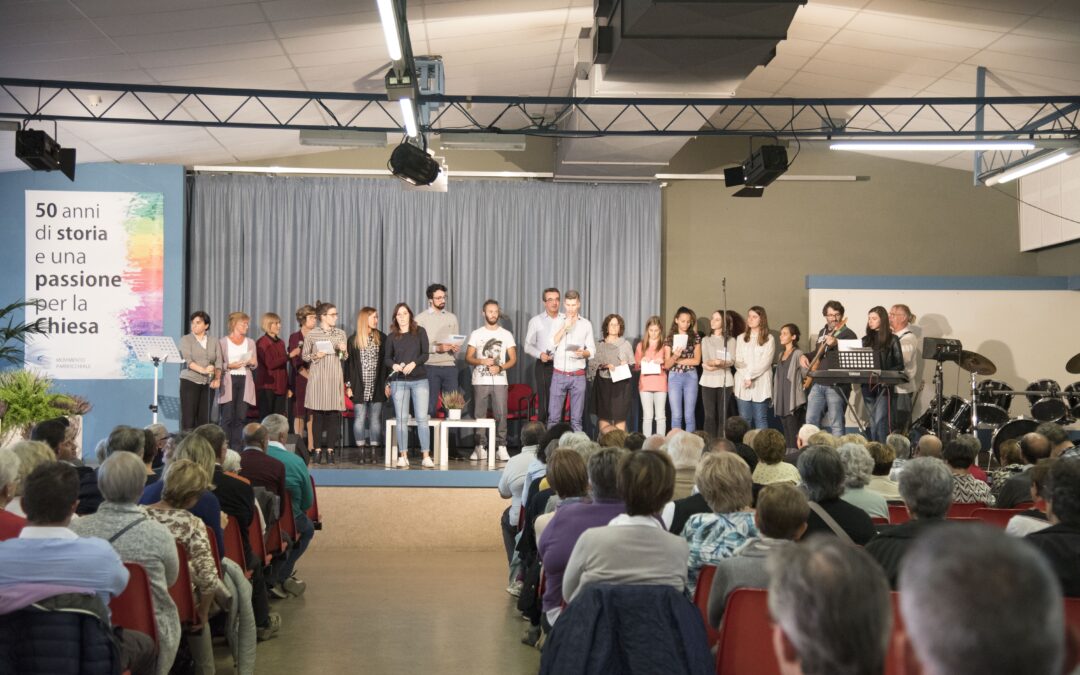
Oct 17, 2017 | Non categorizzato
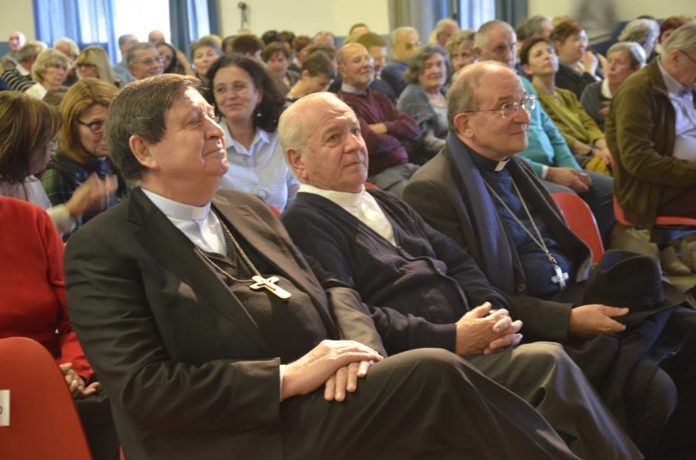 The picturesque setting with mountains all around was a welcoming scene that embraced all the people that went up the Val di Lanzo for the celebration of the 50th anniversary of the founding of the Parish Movement. The event was titled 50 Years of Passion for the Church and was held at the Maria Orsola Centre, which was filled to the brim with people from the area. Among them was Cardinal card. João Bráz de Aviz, Prefect of the Congregation for Institutes of Consecrated Life and Apostolic Life; along with Giuseppe Petrocchi, Archbishop of Aquila. In her message, Focolare president, Maria Voce, mentioned how fifty years before, in Vallo, one of the first communities gathered with Archbishop Vincenzo Chiarle to live the Focolare’s spirituality of communion and give “witness to an authentic lifestyle of the Gospel in the context of a parish, renewing spirits and structures.” They were a model of a “living church,” according to the definition of Archbishop Petrocchi, small in size, but great in spirit and in service. An example of holiness emerged from the community, the sixteen year-old Maria Orsola, now on her way to official recognition as a model of holiness.
The picturesque setting with mountains all around was a welcoming scene that embraced all the people that went up the Val di Lanzo for the celebration of the 50th anniversary of the founding of the Parish Movement. The event was titled 50 Years of Passion for the Church and was held at the Maria Orsola Centre, which was filled to the brim with people from the area. Among them was Cardinal card. João Bráz de Aviz, Prefect of the Congregation for Institutes of Consecrated Life and Apostolic Life; along with Giuseppe Petrocchi, Archbishop of Aquila. In her message, Focolare president, Maria Voce, mentioned how fifty years before, in Vallo, one of the first communities gathered with Archbishop Vincenzo Chiarle to live the Focolare’s spirituality of communion and give “witness to an authentic lifestyle of the Gospel in the context of a parish, renewing spirits and structures.” They were a model of a “living church,” according to the definition of Archbishop Petrocchi, small in size, but great in spirit and in service. An example of holiness emerged from the community, the sixteen year-old Maria Orsola, now on her way to official recognition as a model of holiness. 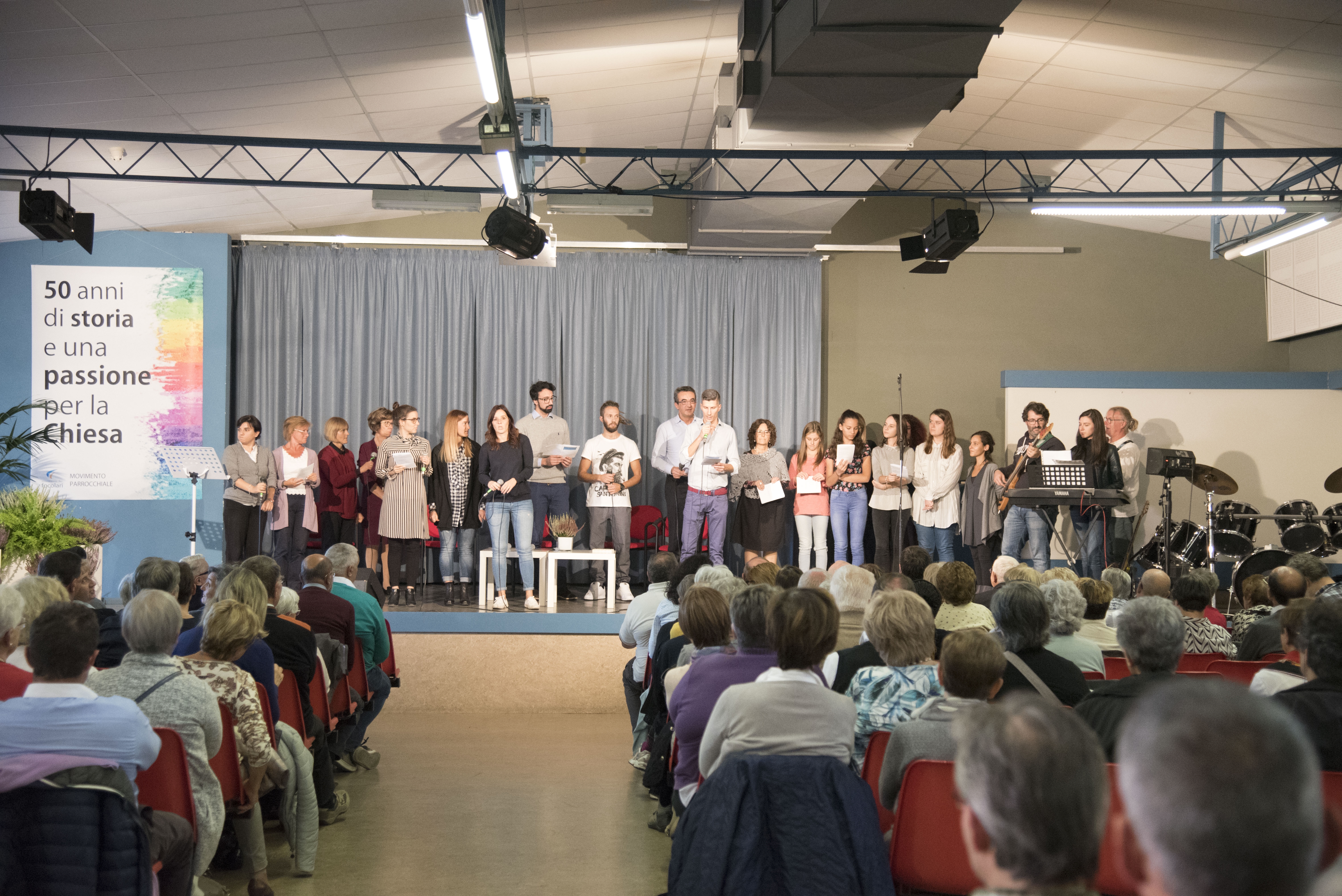 From the intuition of Chiara Lubich going back to the late 1940s regarding the influence that the spirituality of unity would have on parish communities, to the historic meeting with Paul VI in 1967, which marks the official beginnings, the history of the Parish Movement was described by the first witnesses. The commitment continues. Vallo continues to be a popular destination for groups of young people and communities because of the spirituality of communion that is lived there. Today Vallo welcomes many communities from all the regions of Italy and the world. Bruno and Luisa, one married couple from Genoa, Italy, share their testimony of active involvement in strict unity with their pastor. The experience of Luca was very touching. Thanks to the support of the young people from his parish, he was able to transform the unexpected side effects of a road accident, into a rediscovery of prayer and the precious value of life. As Archbishop of Turin, Cesare Nosiglia commented in his open address, celebrating 50 years of life means to go back to the roots and keep moving on towards the new challenges. Carla Cotignoli
From the intuition of Chiara Lubich going back to the late 1940s regarding the influence that the spirituality of unity would have on parish communities, to the historic meeting with Paul VI in 1967, which marks the official beginnings, the history of the Parish Movement was described by the first witnesses. The commitment continues. Vallo continues to be a popular destination for groups of young people and communities because of the spirituality of communion that is lived there. Today Vallo welcomes many communities from all the regions of Italy and the world. Bruno and Luisa, one married couple from Genoa, Italy, share their testimony of active involvement in strict unity with their pastor. The experience of Luca was very touching. Thanks to the support of the young people from his parish, he was able to transform the unexpected side effects of a road accident, into a rediscovery of prayer and the precious value of life. As Archbishop of Turin, Cesare Nosiglia commented in his open address, celebrating 50 years of life means to go back to the roots and keep moving on towards the new challenges. Carla Cotignoli
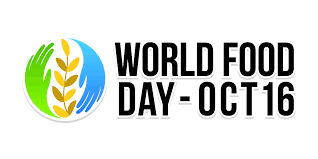
Oct 16, 2017 | Non categorizzato
 Established by FAO (Food and Agriculture Organization) of the United Nations, World Food Day is celebrated annually on 16 October to raise public awareness regarding poverty, hunger and malnutrition in the world, as well as issues regarding food safety and methods to improve agricultural productivity. This year the theme is focused on: “Change the future of migration. Invest in food security and rural development.”. During an official visit to the FAO headquarters in Rome, Pope Francis reminded everyone this morning that “all human beings have the right to, without having to part from their loved ones.” “Faced with such a goal,” he said, “the credibility of the entire international system is at stake. (…) It is therefore urgent to find new paths, to transform the possibilities available to us into a guarantee that permits each person to look to the future with well-founded trust and not only with desire.” Significantly, In the entrance hall, the sculpture donated by the Holy Father to the FAO was unveiled, depicting the small Syrian who drowned at the beach in Bodrum,Turkey. A warning not to forget.
Established by FAO (Food and Agriculture Organization) of the United Nations, World Food Day is celebrated annually on 16 October to raise public awareness regarding poverty, hunger and malnutrition in the world, as well as issues regarding food safety and methods to improve agricultural productivity. This year the theme is focused on: “Change the future of migration. Invest in food security and rural development.”. During an official visit to the FAO headquarters in Rome, Pope Francis reminded everyone this morning that “all human beings have the right to, without having to part from their loved ones.” “Faced with such a goal,” he said, “the credibility of the entire international system is at stake. (…) It is therefore urgent to find new paths, to transform the possibilities available to us into a guarantee that permits each person to look to the future with well-founded trust and not only with desire.” Significantly, In the entrance hall, the sculpture donated by the Holy Father to the FAO was unveiled, depicting the small Syrian who drowned at the beach in Bodrum,Turkey. A warning not to forget.

 My return “My father passed away when I was 14. My mother, who was much younger than he was, gave us children much grief. She was often out with friends drinking, and she eventually left us for someone who divided his time between her and another family. After my siblings married, I found myself living alone, blaming my mother for all my pain. I could not forgive her. Yet I still called myself a Christian. I thought about the fact that she could not give me something she had not received herself. I realised it was up to me, since I had received the grace of the Gospel, to take the first step. It was a slow process. I started by calling her every so often, visiting her with small gifts and praying for her. Once I had felt like a victim of circumstances, but now I discovered that true happiness lies in loving without expecting anything in return. Even my relationship with her partner became more and more peaceful, and I try not to judge. Now I am the bridge between my siblings and my mother, and I’m sure that little by little they will come back to her.” (Alenne, Brazil) The cup of tea “I was in a cafe’ when I noticed an elderly lady asking for a cup of tea. She was quite poor, and the owner, thinking that she wouldn’t be able to pay, refused to serve her. I didn’t have much change in my pocket, but it would have been enough. I thought it was what Jesus would have done, so I said to the owner, “Give her the tea, I’ll pay.” To my surprise he answered: “That wouldn’t be fair. Your generosity helped me understand that it is much simpler for me, as the owner here, to offer it to her.” Taking the first step was all that was needed!” (John Paul, Pakistan) A hundredfold of love “For a number of years I’ve been working at a rehabilitation center, mostly with young people who, despite their vulnerability and suffering, are fighting to get back to a normal life. We work together in the kitchen each Thursday to prepare lunch. I thought I was being useful for them, but instead I’ve experienced that the love I give always comes back hundredfold. I understood that if we make an effort to welcome others as they are, with their weaknesses and painful histories, as Jesus would with a merciful eye, we can experience hope for a more peaceful future.” (Graziella, Italy) Forgetting my shortcomings “When I speak in public, my hands shake and my head gets a bit foggy. I tried to accept this and instead try to do something tangible for others. I started with small gestures, like helping my mother with the housework, or my siblings with their homework. Or I call my grandmother, who lives alone, and I go to visit her, bringing her some flowers or something sweet. At university I try to give a hand to those who are not as successful with exams. By doing this, my life didn’t just change, but I practically forgot all about my shortcomings.” (M., Germany)
My return “My father passed away when I was 14. My mother, who was much younger than he was, gave us children much grief. She was often out with friends drinking, and she eventually left us for someone who divided his time between her and another family. After my siblings married, I found myself living alone, blaming my mother for all my pain. I could not forgive her. Yet I still called myself a Christian. I thought about the fact that she could not give me something she had not received herself. I realised it was up to me, since I had received the grace of the Gospel, to take the first step. It was a slow process. I started by calling her every so often, visiting her with small gifts and praying for her. Once I had felt like a victim of circumstances, but now I discovered that true happiness lies in loving without expecting anything in return. Even my relationship with her partner became more and more peaceful, and I try not to judge. Now I am the bridge between my siblings and my mother, and I’m sure that little by little they will come back to her.” (Alenne, Brazil) The cup of tea “I was in a cafe’ when I noticed an elderly lady asking for a cup of tea. She was quite poor, and the owner, thinking that she wouldn’t be able to pay, refused to serve her. I didn’t have much change in my pocket, but it would have been enough. I thought it was what Jesus would have done, so I said to the owner, “Give her the tea, I’ll pay.” To my surprise he answered: “That wouldn’t be fair. Your generosity helped me understand that it is much simpler for me, as the owner here, to offer it to her.” Taking the first step was all that was needed!” (John Paul, Pakistan) A hundredfold of love “For a number of years I’ve been working at a rehabilitation center, mostly with young people who, despite their vulnerability and suffering, are fighting to get back to a normal life. We work together in the kitchen each Thursday to prepare lunch. I thought I was being useful for them, but instead I’ve experienced that the love I give always comes back hundredfold. I understood that if we make an effort to welcome others as they are, with their weaknesses and painful histories, as Jesus would with a merciful eye, we can experience hope for a more peaceful future.” (Graziella, Italy) Forgetting my shortcomings “When I speak in public, my hands shake and my head gets a bit foggy. I tried to accept this and instead try to do something tangible for others. I started with small gestures, like helping my mother with the housework, or my siblings with their homework. Or I call my grandmother, who lives alone, and I go to visit her, bringing her some flowers or something sweet. At university I try to give a hand to those who are not as successful with exams. By doing this, my life didn’t just change, but I practically forgot all about my shortcomings.” (M., Germany)













